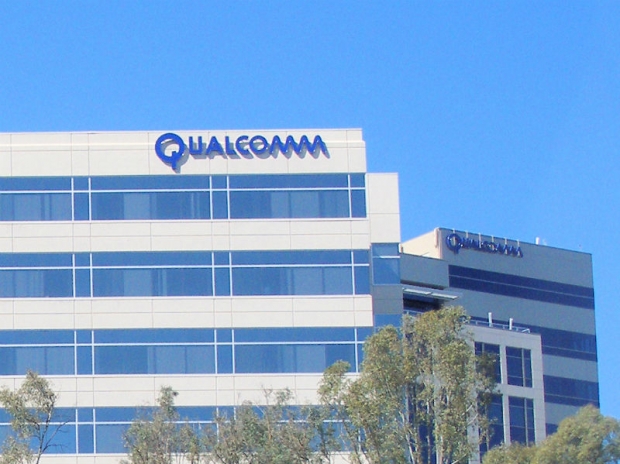Qualcomm announced $6.0 billion revenue - that's up four percent compared to Q1 2016 ($5.8 billion), with operating income of $0.8B GAAP ($2.1B non-GAAP) and net income of $0.7B GAAP or $1.8B non-GAAP. To keep things simple, Non-GAAP results exclude the QSI (Qualcomm Strategic Initiatives) segment and certain share-based compensation, acquisition-related items, tax items and other items. In other words it massively excludes the recent $47 billion acquisition of NXP and a few other cost related items.
Qualcomm is happy to announce year over year growth in both its semiconductor and licensing business. Its forecast for the future is good as it is expecting to see continuing growth of global 3G/4G device shipments in 2017, led by growing demand in emerging regions. The NXP acquisition accelerates "strategic transformation" in the high growth areas of automotive, IoT, security and networking. This is probably one of the key things that will influence the future position of the company. We expect that with the NXP acquisition, Qualcomm has a strong chance to storm the automotive market and do well with its IoT effort. The company already surprisingly announced the deal with the word’s biggest automotive company, Volkswagen and is making huge leaps in drone, wireless, and head mounted VR devices (wearables) too.
According to company officials, the recent legal and governmental actions against Qualcomm are, at their core, driven by commercial disputes. Qualcomm is quite sure that Apple is behind some of these legal actions. It looks a bit too coordinated to be called a coincidence that the US Federal Trade Commission, Korean government, and Apple filed the legal claims days (weeks) apart.
Derek Aberle President of Qualcomm said:
We look forward to vigorously defending our business. We have faced legal challenges to our business model over the years, given the powerful commercial interest that play. But there is clear evidence of vibrant competition across the mobile industry. And this environment is enabled by our broad pro-competitive licensing program. We expect and look forward to outcomes that confirm the valuable contributions to innovation and competition that our technologies bring. Apple's attack on Qualcomm's business model is not only an attack on Qualcomm, but also an attack on the smartphone competition that Qualcomm's business model enables.
We will talk about this later, but it is clear that Qualcomm is not happy and it won’t give up without a fight. It doesn’t really seem plausible that Apple, the company which gets 90 percent of smartphone revenue, is overcharged by Qualcomm.
One thing we did learn over the last few years is that making a functional LTE modem is very hard - just ask Nvidia which acquired and then killed its Icera LTE part. This adventure cost Nvidia $367 million in cash, plus tens if not hundreds of millions in R&D before it killed off the modem efforts. Nvidia could not make the Soft LTE modem work well.
Intel is trying, but seriously falls behind Qualcomm as proven by many reports including the one from Cellular report on the iPhone 7 AT&T (Intel modem) weakness, and the Verizon version (Qualcomm).
Samsung also has some serious disadvantages in the modem business too. It takes time to address and improve things in the wireless industry, that is how the game works, and we learned a few years back from Nvidia that LTE engineers are really hard to get.
Apple struggles with declining revenues and a sharp drop in fanboys' enthusiasm as the company fails to impress with their phones. iPhone 7 is a good phone, but not as great as many hoped. After all, the phone that got everyone in the mobile industry excited comes from a relatively unknown company called Xiaomi. The Xiaomi Mi MIX almost bezel less phone is the one true innovation in late 2016.
Guess what, it has Snapdragon 821 SoC inside and no Apple logo.
Back to the numbers. Qualcomm announced that it shipped 217 million MSM chips, a decrease of 10 percent year-over-year, above the midpoint of its prior guidance range and total reported device sales of $62.9 billion, an increase of four percent year-over-year, above the midpoint of its prior guidance range.
Qualcomm did face some competition in the Snapdragon business in the mid tier of the business where companies like MediaTek took some design wins away, mainly in China.
The guidance for the fiscal Q2 2017 is approximately $5.5 billion to $6.3 billion revenue. When it comes to MSM chips you can expect to see 165 million to 185 million units, a decrease of two percent to 13 percent year-over-year with approximately $74.0 billion to $82.0 billion total reported sales, an increase of six percent to 17 percent year-over-year. In other words, Qualcomm expects to see less MSM SoCs but make more money on them, as the average selling price is going to increase.
Global 3G/4G device shipment is estimated to be approximately 1.75 billion to 1.85 billion for calendar year 2017, up four percent to 10 percent year-over-year.
Overall, the recent strain of lawsuits initiated by Apple does make Wall Street uneasy as these guys still believe that Apple is a dreamcatcher that deserves to control the world. Billions of people using Windows and Android devices on a PC or mobile side, disagree and when it comes to 5G, that is just right round the corner, the world needs Qualcomm to lead us there.
Intel, Samsung, MediaTek and a few others will do fine in 5G, but none of them will lead the industry in this important step that will define the next decade. None of these companies have what it takes to be the leader in this, they simply lack the manpower and experience.
As for Wall Street, Qualcomm will do just fine, just think that Snapdragon 835 is probably the best SoC ever made and the fact that Qualomm had 10nm SoC before Apple, Intel or Samsung. From our poinr of view, we call this leadership.




